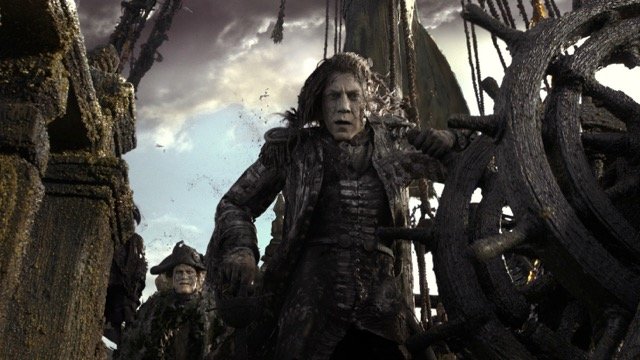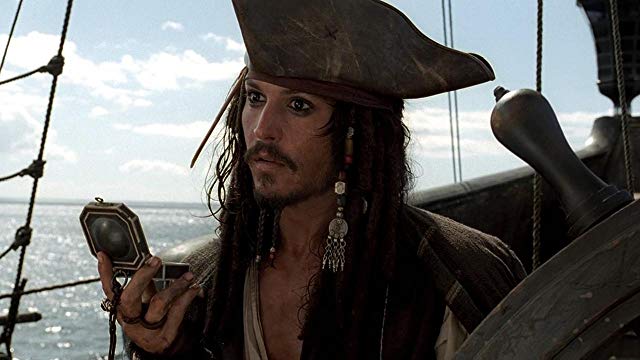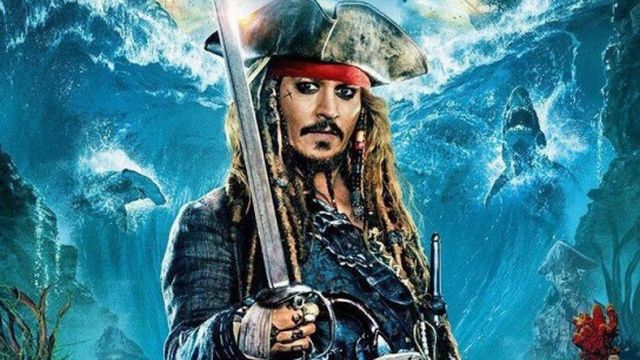Last week, it was reported that Disney was looking to reboot the Pirates of the Caribbean franchise. Let that sink in for a second. Pirates of the Caribbean: Curse of the Black Pearl just recently celebrated its 15th birthday. That’s right, the first film landed in 2003. So, is the franchise worthy, or even deserving of a reboot? The answer to this seems to be a resounding no, at least based on the initial reactions. It seems that at best, a reboot of Pirates of the Caribbean would be unwanted. At worst it’s completely unnecessary and could very well kill the franchise altogether.
Looking at Disney’s logic here, it makes sense on a practical level. In rebooting Pirates of the Caribbean, the mouse house is trying to extend the life of one of their most lucrative franchises. With over $4.5 billion in ticket sales spread over five installments, it would seem from the outset that they could do no wrong. The problem with this logic is that the movies are still essentially a relic of the early aughts. In other words, the franchise is severely outdated.
To play devil’s advocate, a reboot might actually help to modernize the series. However, it seems that the ultimate intention for the reboot is to expel its most recognizable character: Jack Sparrow. The only real reason to do that is if Disney wants to purge Johnny Depp’s name from the franchise. The problem with this logic is that the franchise doesn’t really work without Jack Sparrow. Consequently, Jack Sparrow also doesn’t work without Johnny Depp. It’s a rather simple formula that’s hard to mess up.

Before we get to the elephant in the room, it’s important to note that the Pirates of the Caribbean movies are perhaps the best example of diminishing returns among any modern franchise. While the first film was both a critical and commercial success, every sequel has performed exponentially worse than it’s predecessor. The Curse of the Black Pearl is the only film in the series that carries a certified fresh rating with critics. When it comes to critical perception, the Pirates of the Caribbean franchise has only gone downward. It’s easy to see why. All of the sequels tread the same waters, so naturally the movies have become increasingly stale.
Conversely, the franchise’s box office returns have exponentially increased over time. In total, the franchise has earned a combined $4.5 billion internationally as previously mentioned. Although impressive at first glance, the fact remains that ever since Dead Man’s Chest the domestic grosses have fallen with each installment. Last year’s Dead Men Tell No Tales took in roughly $172 million, only 21% of the film’s worldwide grosses. When you look at the unadjusted returns for the first three films to the fourth and fifth, it’s easy to see how domestic audiences have essentially abandoned the franchise.
There are certainly a few factors involved in the franchise’s success, but the biggest is unequivocally that of Johnny Depp. If we’re being honest, Johnny Depp is currently a PR nightmare. The actor has always had his fair share of off-screen controversy, but the last few years have been particularly rough for the actor. Despite being one of the highest paid actors in the world, Depp’s extravagant and troubling lifestyle has led the actor into essentially take roles for the paycheck. More so than any of his recent work, this downturn in quality has shown with the last two films in particular. Depp may not realize this, but audiences are beginning to catch on that he really doesn’t care about this franchise anymore.

With that said, a huge part of why the Pirates of the Caribbean movies were a success in the first place was because of the draw that the franchise created behind Depp’s name. Unfortunately for Disney, Depp’s cinematic legacy is intrinsically tied to the franchise. Regardless of the reasoning Disney may have for a reboot, people automatically associate Depp with these movies. Although iconic characters have been successfully re-cast throughout the decades, there is a clear distinction that makes this a unique case: time.
This speaks to the omnipresent nature of the character. So many of the eccentricities of the franchise can be traced to the nuance that Depp brings Jack Sparrow. Truth be told, there’s really no way to successfully re-cast the character without Depp’s shadow looming behind every choice that a new actor would make. There just simply hasn’t been enough time for Depp’s interpretation of Captain Jack Sparrow to fade from such a strong association with these movies.
Looking at Disney’s options with the franchise, there are three scenarios that could potentially play out. The first would be a hard reboot of the franchise as the initial report suggested. The second might be doing a soft reboot that includes Depp in a smaller capacity, potentially a cameo. Finally, Disney could simply make a sixth movie that ties up all of the loose ends from the entire franchise. While the third option is probably the least likely of these, all of these scenarios provide what is essentially a zero-sum game where everyone involved loses.

If Disney does eventually settle on a reboot, it could potentially work. But it’s also very risky. By bringing in Rhett Reese and Paul Wernick to write the film, Disney has signaled that they are looking for a different approach to the material. Reese and Wernick have had massive success with the Deadpool films and Zombieland. Both were lucrative genre-based action comedies, so it’s easy to see how this might work on paper. Using this logic, the only way to really go forward with Pirates of the Caribbean is to introduce new characters in a new setting. In turn, this reboot would also need to re-contextualize the series in a way that would feel different from its predecessors. But if that’s the case, why not just tell an original story? That’s a rhetorical question. Ultimately, we already know why.
From Disney’s perspective, doing a Pirates of the Caribbean reboot ultimately shows a lack of confidence in the state of the franchise. Truth be told, director Gore Verbinski was also one of the big reasons Pirates of the Caribbean worked in the first place. Verbinski was instrumental in casting Depp in the lead role, but his childhood affinity for swashbuckling adventures shows in every moment of that first trilogy. Before the success of Curse of the Black Pearl, there was a certain sigma surrounding pirate movies. Afterward, Verbinski’s take on the material gave Disney pirate movies that were fun again. Regardless of who writes the reboot, the new director must have a unique and singular vision that captures audiences. And it’s very difficult to recapture that level of success.

While Verbinski brought a ton of appeal to the first three Pirates of the Caribbean films, the director’s absence in the most recent installments have proven that it ultimately has its limits. There’s not much else to do that the franchise hasn’t already done. With the absence of Depp, a reboot feels like it’s beating a dead horse. In a certain respect Disney has put themselves into a stranglehold with this decision. Of all the directions discussed earlier, none really provide a sure-fire way to ensure that another Pirates of the Caribbean movie would be successful. It will probably be a few years before the franchise gets back off the ground, which will certainly help numb the sting of a reboot. However the franchise is somewhat of a liability a this point. Perhaps it’s just best to let sleeping dogs lie for now.
What do you think about a potential Pirates of the Caribbean Reboot? Let us know in the comments below!









